AS BUILT, 289 CID STRAIGHT SIX, 3 SPEED MANUAL, DUAL COWL, SIDE CURTAINS, RARE!
- Price:
- Location: Local pick-up only
- Condition: Used
- Make: Packard
- Model: 526 Phaeton
- Type: Convertible
- Doors: 4
- Year: 1928
- Mileage: 46,237
- Color: Tan
- Engine size: Inline 6
- Transmission: Manual
- Interior color: Tan
- Vehicle Title: Clear
1928 Packard 526 Phaeton Description
This machine is for the person who knows the difference between a car show and a concours. A Packard was a sign of wealth and distinction when it was new, nd the reputation has only grown as these elegant machines have only grown rarer. This former National First Prize Winner at the Antique Automobile Club of America was part of a large collection from a deceased owner in Landis, C, hat was finally brought out to be presented to the world again.Packards have always been about providing premium motoring, ut this one shows a new level of class in its originality. The bodywork, hrome grille, olid two-tone wheels, ights, oldable luggage rack, nd all other major components show signs that they were in the care of someone who knew that maintaining did not mean fidgeting. While the endurance of some paintjobs will mention the numbers of years it survived, his one can be measured in the people it outlived. The dual cowl phaeton is one of the most sought-after styles from this era. It combines the ideas of early open motoring with the elegant appearance (and function) of an adjustable second windshield for the passengers. For added weather protection, here is a folding canvas top. It has a sleeker profile than convertible sedans of this era, hich allows for it to show off part of its wood construction. Factory-correct side curtains are also included if you need to fully button-up this phaeton. Because this Packard would spend most of its time open to the world, he interior perfectly complements the exterior. The seats are a near-perfect match for the tan paint, nd the wood panels carry some of the same tones as the external brown. There is plenty of interior room within this car's 126-inch wheelbase (because 1928 was the fifth year for this series, his is often referred to as a 5-26 or 526 model). One of the most elegant pieces of this lumber wraps around the entire passenger cabin, nd even curves up to create the top edge of the dash. It provides a great outline for the tapering five-person body. There might be a place or two that need a new lacquer finish for those who don't cherish absolute originality. Overall, t is hard to find a piece that has been replaced (or needs replacing) in the 87 years since this luxury car first left the factory.Powering this Packard is the 289 cubic-inch straight six cylinder motor. It's mated to a three-speed manual transmission (pre-synchromesh). 1928 was the final year for the "Single Six" and constant improvement to this model meant its 81 hp was now approaching its larger eight-cylinder brother. All Packards carried the same engineering marvels of the time such as the four-wheel brakes, hassis lubrication system, nd pedal activated stop light. While the six-cylinder was a bit more economical, t is like trying to compare Rolls-Royces today. The cost of this phaeton when new could have bought around five Ford Model As. In fact, ackard used a great analogy to help people understand why the 526 models were so expensive. The company would mention that people once bought paper-soled shoes until they realized buying better shoes lasted longer. So Packard warned others not to pay less for paper-soled cars. Imagine if had they had only known how long this phaeton would last! Packard promoted this one as a car that offered beauty, istinction, omfort, ong life, conomy, nd safety. Nine decades later, e couldn't agree more, nd neither can the crowds gathering already in the showroom. Call today!
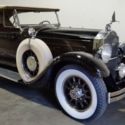 1929 Packard Dietrich Dual Cowl Phaeton
1929 Packard Dietrich Dual Cowl Phaeton
Mileage: 95
 1936 Packard Dual Cowl Open Touring Car
1936 Packard Dual Cowl Open Touring Car
Mileage: 500
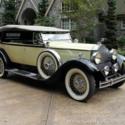 1930 Packard 733 Dual Cowl Sport Phaeton. SPECTACULAR! See VIDEO
1930 Packard 733 Dual Cowl Sport Phaeton. SPECTACULAR! See VIDEO
Mileage: 28,600
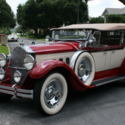 FORMER AACA NATIONAL FIRST PLACE - 1929 Packard 640 Dual Cowl Sport Phaeton
FORMER AACA NATIONAL FIRST PLACE - 1929 Packard 640 Dual Cowl Sport Phaeton
Mileage: 3,800
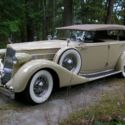 1936 4th SERIES PACKARD DUAL COWL PHAETON on 134 3/8” Wheel base. NO RESERVE!
1936 4th SERIES PACKARD DUAL COWL PHAETON on 134 3/8” Wheel base. NO RESERVE!
Mileage: 06967
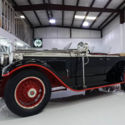 1927 PACKARD 336 DUAL COWL SPORT PHAETON BODY BY HOLBROOK, STUNNING!
1927 PACKARD 336 DUAL COWL SPORT PHAETON BODY BY HOLBROOK, STUNNING!
Mileage: 17,869
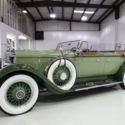 1929 Packard Deluxe Eight Dual Cowl Sport Phaeton | Prior long-term ownership
1929 Packard Deluxe Eight Dual Cowl Sport Phaeton | Prior long-term ownership
Mileage: 2
 1954 Packard Convertible Coupe, Rare Model 5479, 359 Straight 8, Only 863 Built!
1954 Packard Convertible Coupe, Rare Model 5479, 359 Straight 8, Only 863 Built!
Mileage: 53,866
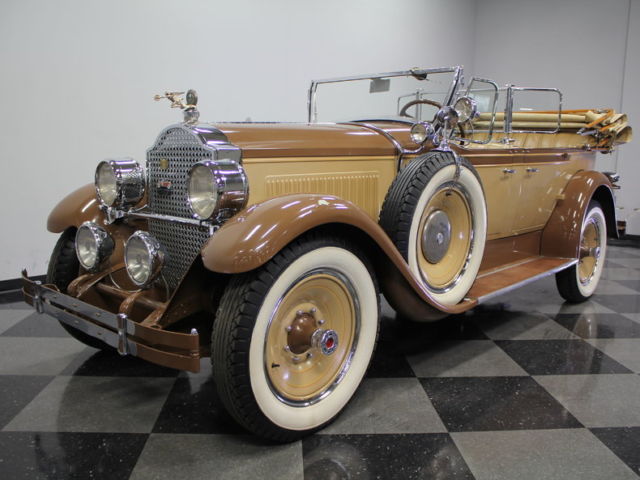
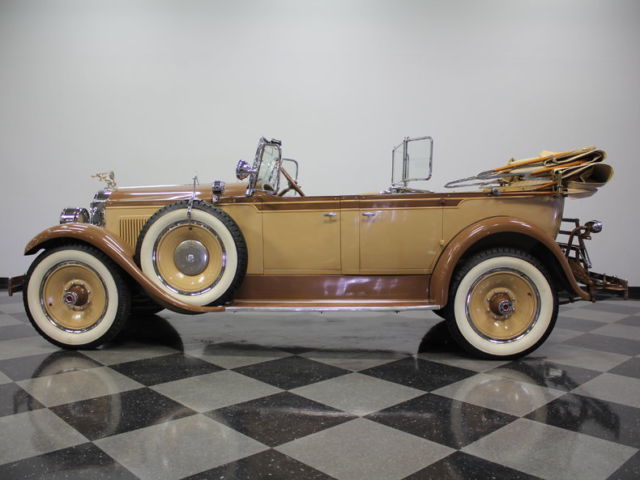
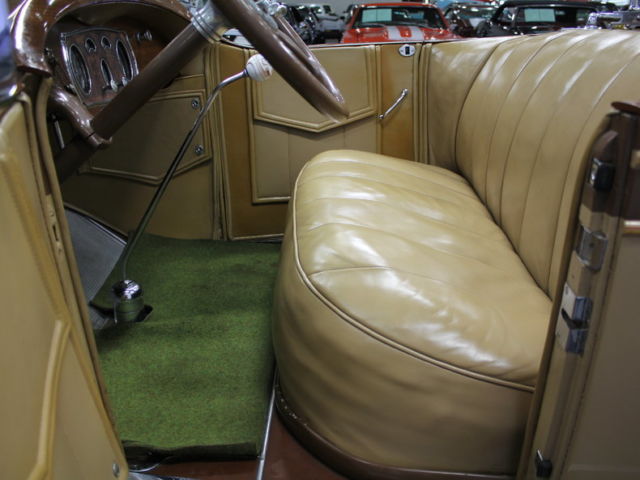
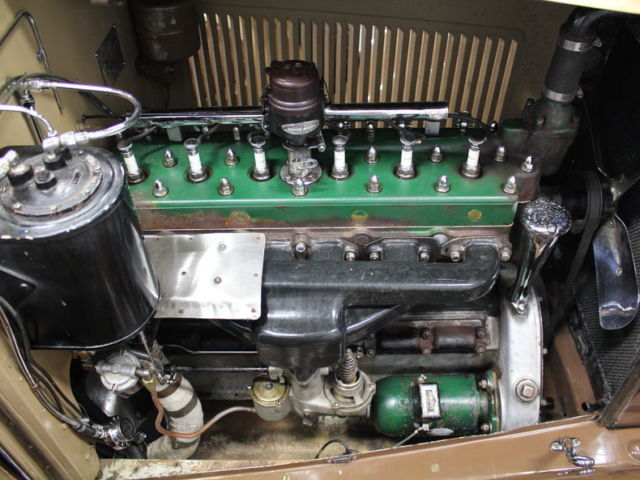
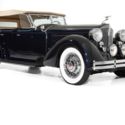 1930 Packard Custom Dual Cowl Phaeton Convertible
1930 Packard Custom Dual Cowl Phaeton Convertible
 1930 Packard--Standard Eight 733, Dual Cowl-Sport Phaeton
1930 Packard--Standard Eight 733, Dual Cowl-Sport Phaeton